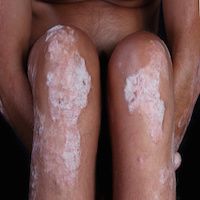Article
Most Patients with Plaque Psoriasis Are Dissatisfied with Their Treatment
Author(s):
Many psoriasis patients wish they were better informed of the significant impact their skin condition would have on their physical and mental health, according to results from Psoriasis in America 2016, a Health Union national survey.

Many psoriasis patients wish they were better informed of the significant impact their skin condition would have on their physical and mental health, according to results from Psoriasis in America 2016, a Health Union national survey.
Researchers have not yet discovered a cure for psoriasis, and since external triggers can cause the disease to flare up, treatment is not simple.
The 582 national survey participants revealed that although these patients appear to have an array of treatment options, they have trouble finding ones that work specifically targeted to their condition. Experts attribute this largely to the fact conditions can change and treatments can simply grow less effective over time or just stop working altogether. Also, these treatments become expensive, particularly if insurance coverage changes or is lost.
Among the survey participants, only one in three reported they were actually satisfied with their current treatment plan:
· 40% previously used phototherapy/light therapy, but only 4% currently do
· 49% previously used corticosteroids, but only 31% currently use them
· 36% previously used topical treatments (prescription OTC), but now 57% use them
· 26% of the participants currently use the newer biologic medicines
Psychological toll was a big factor of this study — 58% wished they would’ve known the impact psoriasis would have mentally and physical; they expressed “heavy emotional toll,” feeling isolated and shunned. Furthermore, they hoped others had a better understanding of the negative effects of psoriasis.
· 86% felt embarrassed by their psoriasis
· 81% said that psoriasis impacted their emotional well-being or have been depressed
· 66% felt isolated or alone due to their psoriasis
The experts concluded, “The social, relational, and psychological aspects of plaque psoriasis cannot be overstated. People often don’t understand the stigma of having a visible condition like psoriasis. In addition, there is the unpredictable nature of the condition. When you don’t have the stability that can take quite a toll.”





